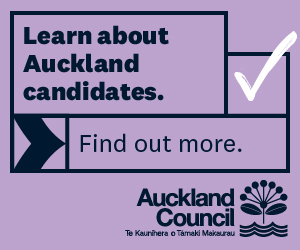
Hibiscus and Bays Local Board

Climate change and resilience
Climate change poses a huge challenge for communities as more frequent extreme weather events require us to rethink how we live and where. Local authorities are at the forefront of efforts to respond, with responsibilities for environmental planning and regulation, as well as civil defence. Many councils have plans to reduce emissions in their area and are working to help their communities adapt to a warming world.

Climate change and resilience
Climate change poses a huge challenge for communities as more frequent extreme weather events require us to rethink how we live and where. Local authorities are at the forefront of efforts to respond, with responsibilities for environmental planning and regulation, as well as civil defence. Many councils have plans to reduce emissions in their area and are working to help their communities adapt to a warming world.
Follow the science in making decisions, prioritising solutions for local issues like the Ōrewa sea wall.
Act on the science to manage and where possible resist rising sea levels to preserve today's population's existing living situation.
Lobby council to show where science indicates it's safe to build and adjust planning and consenting to build away from future trouble spots.
Ensure fiscal responsibility when addressing climate change lessening the burden on rate payers.
Encourage the use of state of the art technology in pursuit of cost effective reduction in greenhouse gas emissions.
Lead by example by ensuring that the local board itself is doing what is required to alleviate the effects of climate change.
Support initiatives at a local level which can reduce gas emissions.
Support local civil defence to strengthen communication channels, particularly in case of tsunami for low lying areas like Orewa.
Support current community groups committed to cultivating and implementing green solutions.
Commit to reducing carbon emissions by introducing emission testing of vehicles as part of WOF testing. Removing many ageing vehicles.
Educate and raise awareness of civil defence alerts and requirements in our local board areas so that the community is prepared whenever.
Climate change is a fact we can't eliminate but can help individually and as a community by being more aware of our personal lifestyles.
Commit to and advocate for changes that reduce carbon emissions drastically.
Upgrade water systems infrastructure to minimise the effects of flooding and sea level rise.
Improve reliability and frequency of public transport systems to reduce private transport use and reduce emissions.
Support the implementation of Te Tāruke-ā-Tāwhiri (Auckland's Climate Plan).
Commit to council being carbon neutral by 2025 and reaching net zero emissions by 2050.
Push for improved public transport, cycleways, and car charging infrastructure to reduce reliance on driving gas guzzlers.
Follow the science in making decisions, prioritising solutions for local issues like the Ōrewa sea wall.
Act on the science to manage and where possible resist rising sea levels to preserve today's population's existing living situation.
Lobby council to show where science indicates it's safe to build and adjust planning and consenting to build away from future trouble spots.
Ensure fiscal responsibility when addressing climate change lessening the burden on rate payers.
Encourage the use of state of the art technology in pursuit of cost effective reduction in greenhouse gas emissions.
Lead by example by ensuring that the local board itself is doing what is required to alleviate the effects of climate change.
Support initiatives at a local level which can reduce gas emissions.
Support local civil defence to strengthen communication channels, particularly in case of tsunami for low lying areas like Orewa.
Support current community groups committed to cultivating and implementing green solutions.
Commit to reducing carbon emissions by introducing emission testing of vehicles as part of WOF testing. Removing many ageing vehicles.
Educate and raise awareness of civil defence alerts and requirements in our local board areas so that the community is prepared whenever.
Climate change is a fact we can't eliminate but can help individually and as a community by being more aware of our personal lifestyles.
Commit to and advocate for changes that reduce carbon emissions drastically.
Upgrade water systems infrastructure to minimise the effects of flooding and sea level rise.
Improve reliability and frequency of public transport systems to reduce private transport use and reduce emissions.
Support the implementation of Te Tāruke-ā-Tāwhiri (Auckland's Climate Plan).
Commit to council being carbon neutral by 2025 and reaching net zero emissions by 2050.
Push for improved public transport, cycleways, and car charging infrastructure to reduce reliance on driving gas guzzlers.
Mayor
Compare the mayoral candidates in your area
Local council
Compare the candidates for your city or district council
Regional council
Compare the candidates for your regional council
Local board
Compare the candidates for your local or community board








